Political Hindutva fails to articulate the rich cultural diversity of India and inevitably distorts its history

ANANTDAS, A VAISHNAVA sadhu, wrote the first biography of Kabir around the turn of the sixteenth century. At one point in the story, he recounts how a delegation of pundits and maulanas of Kashi went to Sikandar Lodhi to complain about the waywardness of Kabir. Being an argumentative Indian, Kabir, the faith leaders complained, refused to believe in the putative divinity of any holy book, and insisted on assessing all propositions and practice against the touchstone of common sense and wisdom derived from everyday life. Naturally, they were upset with him.
Sikandar, who had not heard of Kabir, was perplexed. What possible harm could a humble weaver have inflicted on the high and mighty of the city? Had he seized a piece of land or robbed someone perhaps? But, of course, the complaint against Kabir was not simply material—and perhaps therefore harder to grasp. Kabir had discarded Islamic dogma and practice, and was equally scathing of Hindu customs and beliefs. Instead of following the dictates of holy men, he would insist on using his own intellect and, even worse, encourage others to do so as well. This couldn’t go on, the mighties of the delegation concluded, and Kabir had to be banished from Kashi for “as long as this weaver lives in Kashi/ No one is going to follow us”.
هذه القصة مأخوذة من طبعة January 29, 2018 من India Today.
ابدأ النسخة التجريبية المجانية من Magzter GOLD لمدة 7 أيام للوصول إلى آلاف القصص المتميزة المنسقة وأكثر من 9,000 مجلة وصحيفة.
بالفعل مشترك ? تسجيل الدخول
هذه القصة مأخوذة من طبعة January 29, 2018 من India Today.
ابدأ النسخة التجريبية المجانية من Magzter GOLD لمدة 7 أيام للوصول إلى آلاف القصص المتميزة المنسقة وأكثر من 9,000 مجلة وصحيفة.
بالفعل مشترك? تسجيل الدخول

He gave the beat to the world
He would pick up the rhythms of each experience of mobility and weave them into his taals. Thus it was that he reflected joy and laughter in rhythmic cycles...such was the magic of Zakir's fingersText and photographs by Raghu Rai
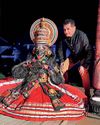
KERALA TOURISM CAMPAIGN, 1989 - TICKETS TO PARADISE
All it took was a catchy tagline-'God's Own Country'-for the world to discover Kerala's wealth of natural beauty. It remains among the best tourism ad campaigns, earning the state a place among top 10 international destinations

SPIRITUALITY - THE GURUS OF COOL
Among the cult Indian gurus, no one had a bigger hold on western minds than 'Osho' Rajneesh. He's also perhaps the role model for the enterprise-building gurus of today
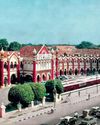
RETAIL SHOPPING - THE MALL MANIA
Shopping malls, a 1990s innovation in India, changed the way the Indian middle class shops. Their success now lies in being 'shoppertainment' destinations, offering something for everyone

CULINARY RENAISSANCE, 1978 - TANDOORI NIGHTS
ITC's Bukhara and Dum Pukht turned the world to tandoori cuisine and had an enormous impact on the F&B industry. Decades on, they are still a pit-stop for celebrities and heads of state visiting Delhi
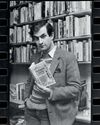
INDIAN WRITING IN ENGLISH - REVENGE OF THE NATIVE
Rushdie lit the way but Indian writing in English has taken a life of its own in the past few decades, with translated Indian fiction most recently having its moment in the sun

INDIAN ART - A BRUSH WITH GOLD DUST
The 1990s economic liberalisation came as oxygen, lighting up the Indian art scene. Today, artworks by established masters routinely go for astronomical amounts
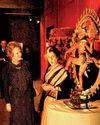
FESTIVAL OF INDIA, 1982 - CULTURE CAPITAL
The Festival of India grew into a symbol of our 'soft power', introducing our art and aesthetics to a global audience while also helping rebrand our domestic products

THE INDIPOP TREND - DISCO GOES DESI
For ages, the film song ruled. Nothing else was audible. Then came Nazia, charioteered by Biddu, and Indian ears went into a pleasant madness. Literally, Disco Deewane. A whole genre was born
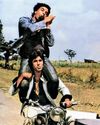
SHOLAY 1975 - THE BIRTH OF THE FANDEMIC
India had seen hits before. But Sholay seared into its collective psyche like a badland bullet. The effect was on a scale never seen before- one film creating a new mass folk culture. And a trail of monster blockbusters that still continues